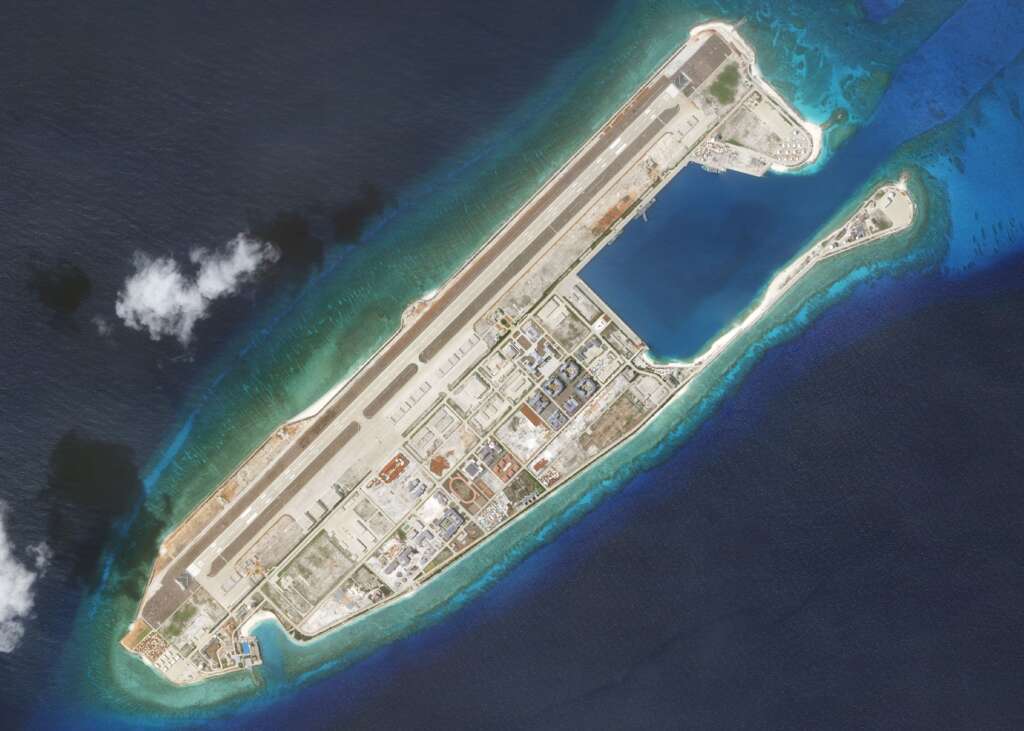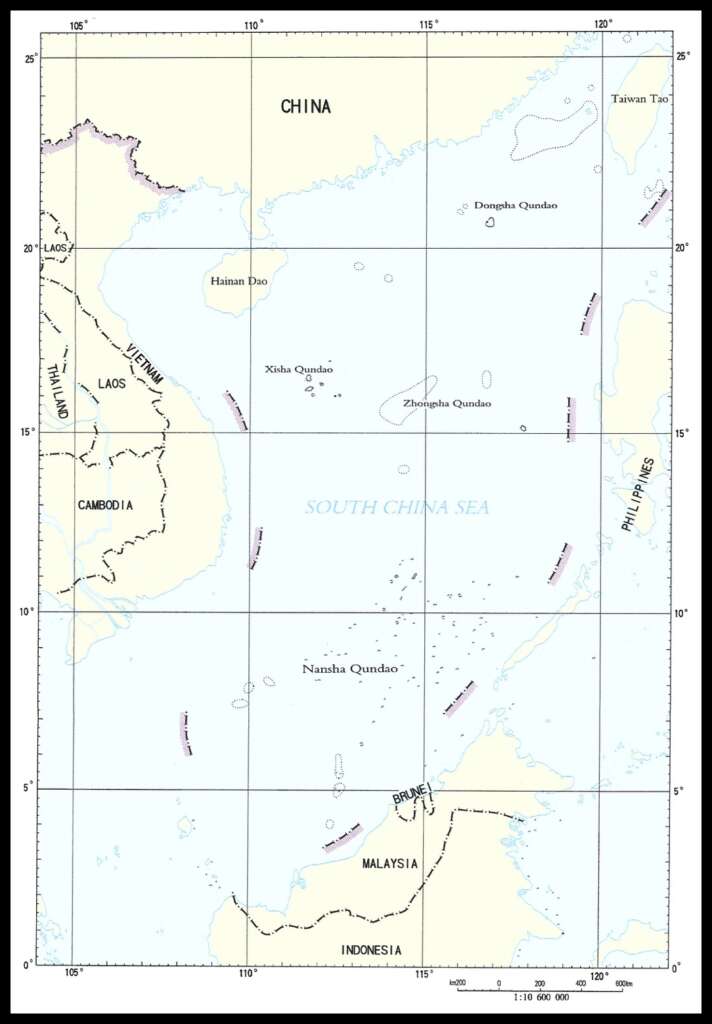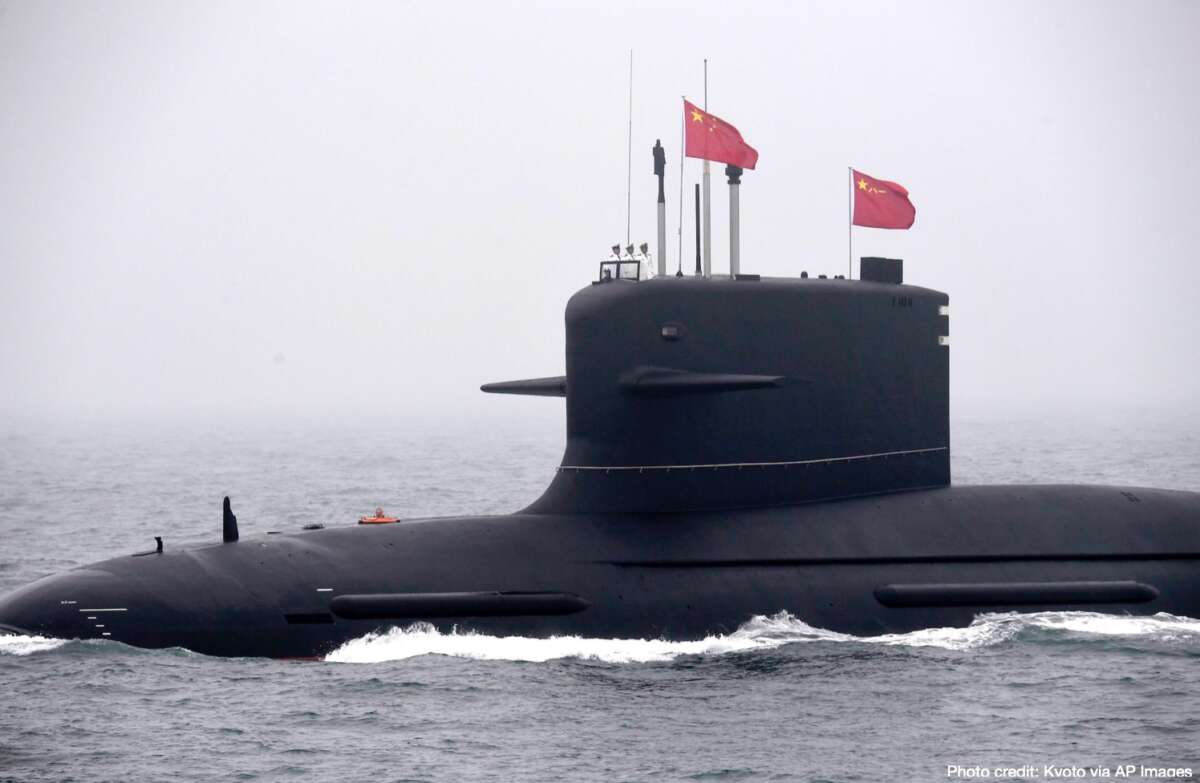Recently, in differents posts, here and here, I wrote to the notion of the People’s Republic of China adopting a bellicose attitude over the recent years, whether in staging war games off the coast of Taiwan or coming just barely three meters away from an American B-52 flying in international waters. Recall another occasion where China forced an American AWACs plane to make an emergency landing. Then, there are the incidents described below with the Philippino Coast Guard. Are we approaching a point when worlds collide?
Ties that bind
There is really no reason for the U.S. and China to flirt with war. True, a major reason for friction between our two countries is Taiwan, and the schizo-policy the U.S. has in admitting that Taiwan belongs to Beijing on the one hand, but demanding that the PRC not exercise sovereignty over Taiwan on the other (hand.) And, we have many tourists from China who visit the U.S. (850,000 this year so far, but that is less than pre-pandemic times.) We also had more than 260,000 Chinese students enrolled in U.S. colleges and universities earlier this year. More importantly, China and the U.S. were brothers-in-arms during the last World War as we confronted a common foe. But the country once described as a “sleeping giant’ has awakened and there are necessarily some ruffled feathers.
The U.S. cannot just abandon the South China Sea. There is a great deal of commerce that passes through the South China Sea from the Koala Lumpur straits to Taiwan, Japan and Korea (and back.) The U.S. shows very little interest in simply ceding this territory to China, especially since international law does not recognize Chinese sovereignty here. Regional neighbors to China such as Vietnam, the Philippines or China, itself, may at some point some point provoke an incident or they may accidentially slide into an unintended conflict. India also views Chinese expansion with a jaundiced eye. A particular concern is that a conflict might errupt when we can least afford one to happen, such as when there are other regional wars like the one in Ukraine and in Gaza or when the U.S. has a president affected by creeping senescence or one who suffers from a narcissistic personality disorder (two scenarios which have occurred back-to-back in the U.S. in the past decade.)
The Nine-Dash-Line
The territorial ambition of the People’s Republic of China became clear in 2009 when China submitted a memo with a map as an addendum referring to a “Nine-Dash-Line as a reference to China’s claims in the South China Sea (included below.) These ocean expanses, the islands, the atolls, and the coral reefs within this perimeter were claimed by the People’s Republic. However, it is not widely known among Americans (at least, to this American) that the imperialist notion of grabbing the vast expanse of the South China Sea actually came from the Republic of China before it fled to Taiwan in 1949. What the current regime in Beijing is doing is simply following through with an earlier initiative that they had no part in.

I use the term “imperialist” because it describes the ability of a country to project its power. And this applies to the People’s Republic today. A recent column in the British Telegraph noted that China currently has more warships in the Persian Gulf than the U.S. has. China’s interest in the South China Sea has to do with mineral wealth (including oil) that may be found there. But also, however, they are creating military bases with airstrips and naval ports in some cases from coral reefs that barely emerge from the surface of the ocean (See photo above of Fiery Cross atoll.) Building such a facility ex nihilo (to misappropriate a term) off the northern coast of Malaysia places them almost half as much closer to Australia as they are now. Of course, Malaysia, Vietnam, the Philippines, and several other sovereign countries (including the U.S.) contest these claims. China has been warning these countries to evacuate the islands within the Nine-Dash-Line perimeter (when applicable) and demanding that American warships stay away, but now the Chinese are getting a bit more assertive. There have been recent clashes with Philippines. Only a week ago:

About five Chinese coast guard ships, eight accompanying vessels and two navy ships formed a blockade on Sunday to prevent two Philippine coast guard ships and two boats from delivering food and other supplies to Filipino forces stationed at Second Thomas Shoal aboard a marooned navy ship, Philippine coast guard Commodore Jay Tarriela said.
During the standoff, one of the Philippine coast guard ships and a supply boat were separately hit by a Chinese coast guard ship and a vessel. Only one of the two Filipino boats managed to deliver supplies to Philippine forces, Tarriela said.”
The People’s Liberation Army (all the armed forces actually) have certain advantages over the U.S. strategically speaking. One advantage would be their fractional orbital bombardment system, which was first tested in 2021. Their long range and high speed torpedos are also cause for concern in the West. The U.S. is playing catch-up with both Russia and China in the area of hypersonic weapons and delivery systems in general.
China also has reasons for concern as far as U.S. behavior goes. The U.S. is responding to perceived Chinese threats by selling Australia three Virginia class nuclear submarines which would give this nation a good deal more influence and if need be, firepower, to secure their part of the world.

Hopefully, a spirit of cooperation between the two countries (the PRC and the USA) can be restored, especially as China becomes more prosperous. A good “canary-in-the-coal-mine” indicator might be how relationships between Hong Kong and mainland China evolve in the future.




